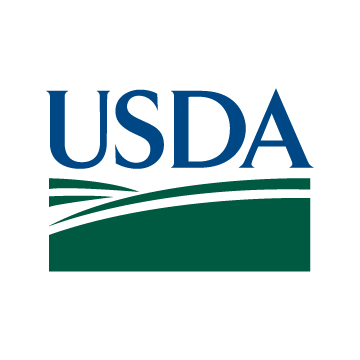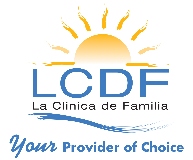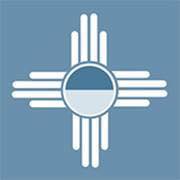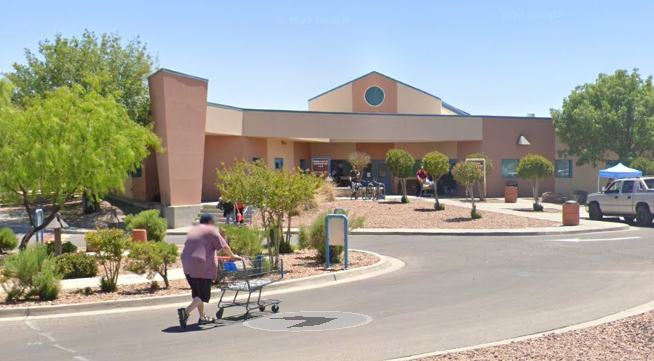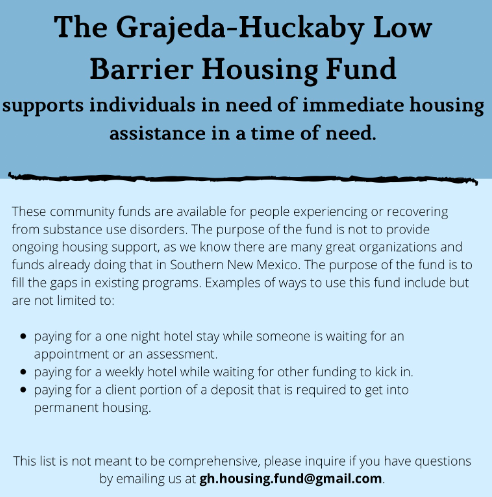GD Archive
Top Level Services
These are services within the county's borders reviewed by local community members. Please take a moment to rate and review services as you interact with the provider. To learn more about service barriers, strengthening services and the 100% directory project, please visit: About The Directory.
PLEASE BE AWARE: During this phase of the COVID-19 pandemic, services may be disrupted. Please contact a service agency before visiting it.
-
OUR MISSION & VISION
CAASNM empowers and uplifts Southern New Mexicans through programs that build individual and family strength and resilience.
Its board-approved mission is to partner with New Mexicans to overcome adversity by connecting communities, encouraging family wellness, empowering families and bridging resources—CAASNM’s four pillars of service in the community.
The overall vision of CAASNM is to see southern New Mexicans live in thriving, equitable communities.
OUR VALUES
CAASNM has long maintained a system of values that speak to its cultural, economic, and wellness sensitive to the needs of families and children in its five-county service region. These values were restated by both CAASNM staff and board during the 2018 strategic planning process:
CAASNM is an adaptive organization that believes:
- People want to thrive
- People can guide their own lives and overcome poverty and adversity
- People we serve will be treated with compassion and respect
- Everyone should have equitable access to healthy food; safe, sanitary and affordable housing; educational opportunities; gainful employment; and quality healthcare
- In being morally and ethically accountable
- Collaboration and teamwork will strengthen those we serve
- Families thrive when connected to their communities in meaningful ways
- Innovation is necessary to foster our vision and mission
OUR PROGRAMS
BRIDGING RESOURCES
Connecting families to community resources and benefits that can increase family and financial stabilityCOMMUNITY CONNECTIONSCollaboration between CAASNM and other independent organizations and programs in the community.FAMILY FINANCIAL EMPOWERMENTOpportunities for families to become more self-reliant by providing programs and services that allow them to improve their economic quality of life.FAMILY WELLNESSHelping to improve overall family wellness and children’s nutrition, exercise, safety and development.
-
: ClosedMon8:00 am - 4:30 pmTue8:00 am - 4:30 pmWed8:00 am - 4:30 pmThu8:00 am - 4:30 pmFri8:00 am - 4:30 pmSatClosedSunClosed
What does this program do?
Also known as the Section 504 Home Repair program, this provides loans to very-low-income homeowners to repair, improve or modernize their homes or grants to elderly very-low-income homeowners to remove health and safety hazards.For existing Section 502 direct and 504 borrowers who have received a payment moratorium related to COVID-19: The American Rescue Plan (ARP) Act of 2021 appropriated additional funds for Section 502 direct and 504 loans, to remain available until September 30, 2023. The focus will be to refinance existing Section 502 direct and Section 504 borrowers who have received a payment moratorium related to COVID-19. Beginning May 17, 2021, the Agency will accept applications from existing Section 502 direct and Section 504 loan borrowers, to refinance outstanding loans which have been in an approved COVID-19 moratorium. Additional information for these borrowers, including a standardized application package, is available at https://pubmai.sc.egov.usda.gov/.
Who may apply for this program?
To qualify, you must:- Be the homeowner and occupy the house
- Be unable to obtain affordable credit elsewhere
- Have a household income that does not exceed the very low limit by county.
- For grants, be age 62 or older and not be able to repay a repair loan
What is an eligible rural area?
Utilizing the USDA Eligibility Site you can enter a specific address for determination or just search the map to review general eligible areas.How may funds be used?
- Loans may be used to repair, improve or modernize homes or remove health and safety hazards
- Grants must be used to remove health and safety hazards
How much money can I get?
- Maximum loan is $40,000
- Maximum grant is $10,000
- Loans and grants can be combined for up to $50,000 in assistance
What are the terms of the loan or grant?
- Loans are termed for 20 years
- Loan interest rate is fixed at 1%
- Full title service is required if the total outstanding balance on Section 504 loans is greater than $25,000
- Grants have a lifetime limit of $10,000
- Grants must be repaid if the property is sold in less than 3 years
- If applicants can repay part, but not all of the costs, applicants may be offered a loan and grant combination
Is there a deadline to apply?
- Applications for this program are accepted through your local RD office year round
How long does an application take?
Approval times depend on funding availability in your area. Talk to a USDA home loan specialist in your area for help with the applicationWho can answer questions and how do I get started?
Contact a USDA home loan specialist in your areaWhat governs this program?
- The Housing Act of 1949 as amended, 7 CFR Part 3550
- HB-1-3550 - Direct Single Family Housing Loans and Grants Field Office Handbook
Why does USDA Rural Development do this?
Helping people stay in their own home and keep it in good repair helps families and their communities. Homeownership helps families and individuals build savings over time. It strengthens communities and helps many kinds of businesses that support the local economy.NOTE: Because citations and other information may be subject to change, please always consult the program instructions listed in the section above titled "What Governs this Program?" Applicants may also contact your local office for assistance.
-
Linkages Subsidy
Eligibility- Patient defined as someone currently
receiving services with LCDF - Is homeless, listed below is (criteria of homeless:)
1) In places not meant for human habitation, such as cars, parks, sidewalks, and abandoned buildings.
2) In an emergency shelter.
3) In a transitional housing.
4) Is being evicted from a private home unit
5) Is being discharge from an institution in which the person has been a resident and has no subsequent residence or resources.- Matched with a Community
Support Worker (CSW) - Diagnosed as having a severe
persistent mental illness or substance
abuse co-occurring with mental illness - Functional Impairment that sustainably
interfere with basic living skills, instrumental living skills, functioning in social, family, and vocational/educational context. This funding will do a background check and disqualifications in regard to background are taken into account.
Move In Assistance Eviction Prevention Grant (MIAEP)
Assistance is to be used for first month rent, damage deposit, utility shut off notice, or eviction prevention.
Eligibility- Patient diagnosed and documented severe mental illness or co-occurring substance use disorder
- Patient must be homeless or at risk of homelessness
- Must have income enough to pay all expenses related to housing
- Must be a one-time applicant and not received grant previously
- Patient must be currently receiving
behavioral health services - This assistance is only to be used as a one time, if in
the past you were granted assistance for MIAEP grant,
you will not qualify. This grant will be distributed as a
one time it is not an ongoing assistance. This funding
is a first come first serve and funding is limited there might
be a chance that this funding will run out
Casa Bonita
Treatment Facility occupancy up to six patients three-bedroom house, independent living matched with a Community Support Worker at La Clinica de Familia. Length of stay is no more than 90 days in the home.
Eligibility- Patient is diagnosed as SMI (severe mental illness)
- Discharge within 60 days from psychiatric treatment center, incarceration, or other institutional setting
- Have no immediate prospect of securing housing
- Receiving services from LCDF Behavioral Therapist, Medical Provider, and CCSS
- A typed letter from Mental Health therapist recommending Casa Bonita as a beneficial place and clinically assessed that patient can live independently with minimum supervision in the home
Local Lead Agency (LLA)
LLA is an agreement between certain properties and LCDF agency, in which we are able to house individuals first into apartments within a certain
time frame.Eligibility:- Patient is diagnosed as Serious Mental Illness
- Addictive Disorder (individuals must be in treatment and demonstrated recovery from substance abuse disorder
- Developmental Disability (intellectual disability, autism, or other disability acquire before the age of 22.)
- Physical, sensory, or cognitive disability occurring after the age of
- Disability caused by chronic illness (i.e., people with HIV/AIDS who are no longer able to work)
- Age-related disability frail elderly, or, young adults with other special needs who have been in the foster care or juvenile services system)
- Households/individuals who are homeless
- ONE of the above plus having a service provider that will conduct monthly visits.
- Patient defined as someone currently
-
Mesilla Valley Hospital offers comprehensive mental health services in a secure, respectful therapeutic environment. Since 1987, we have been providing access to quality behavioral healthcare and dual-diagnosis addiction treatment to patients across the country, including residents of New Mexico, West Texas and Arizona.
Our programs are designed to serve children and adolescents ages 7-17 and adults who face mental health and co-occurring substance abuse issues, including:
- Depression
- Suicidal behaviors
- Anxiety disorders
- Schizophrenia
- Bipolar disorders
- Alcohol and drug dependency
- Adolescent behavioral problems
- Sexual, physical and emotional abuse
- Psychosocial and severe psychosomatic problems
The dedicated, compassionate staff at Mesilla Valley Hospital develop individualized treatment plans for each patient, focusing on their needs and goals. Treatment components include:
- Multidisciplinary assessments
- In-house physicians
- Diagnosis of complex cases
- Medication management and education
- Stress management skills development
- Family education and support
- Individual, group and family therapy
Our Programs
Programs for children and adolescents:
- Acute Inpatient Psychiatric Treatment
- Partial Hospitalization Program (PHP)
- Acute Inpatient Psychiatric Treatment
- Dual-Diagnosis Substance Abuse Treatment
- Drug and Alcohol Detox
- Military Services
- Partial Hospitalization Program (PHP)
Start Your Journey to Recovery
Mesilla Valley Hospital’s professional staff are here to help. Call 800-877-3500 for a no-cost, confidential assessment 24 hours a day, 7 days a week. If you need immediate medical assistance, contact 911 or seek the nearest emergency room.
-
: ClosedMon8:30 am - 5:00 pmTue8:30 am - 5:00 pmWed8:30 am - 5:00 pmThuClosedFri8:30 am - 5:00 pmSatClosedSunClosed
Although this organization is located in Las Cruces, they take referrals from Otero County agencies to help people experiencing homelessness.
Refer Someone to MVCH
If you know anyone who may be in need of our services, please use the link below to refer the individual to our Outreach coordinators:
http://www.mvcommunityofhope.org/mvch-referral-form/
Programs
Our housing programs help our clients get back on their feet by assisting with temporary and permanent housing. The ultimate goal is getting the client into permanent housing. The housing programs include:
- Desert Hope: Desert Hope is a Permanent Supportive Housing project, developed by the MV Public Housing Authority, City of Las Cruces, and MV Community of Hope. MVCH staff will be onsite to help end homelessness for 40 people by offering supportive services for those residing at Desert Hope.
- Permanent Supportive Housing: Individual apartments for homeless people with disabilities and their families.
- Abode Permanent Housing: A group home for the chronically homeless.
- Rapid Rehousing: Subsidized rent to help individuals, families and veterans stabilize after becoming homeless.
- Sue’s House: A group residence for up to four chronically homeless women.
- Veterans Housing: Ongoing rental assistance and supportive services for Veterans at a 20-unit complex. Assistance available to homeless vets for security deposit, first month’s rent, homeless prevention, and utility assistance.
- Linkages: Permanent supportive housing voucher program for persons with severe mental illness who are homeless or precariously housed. MVCH partners with La Clinica de Familia and St. Luke’s Health Care Clinic to provide supportive services.
- Homeless Prevention: Assistance to help individuals, families and veterans who are at risk of becoming homeless.
- New Home Set-ups as available for those in housing program:
- Furniture
- Household goods
- Miscellaneous supplies
- Camp Hope is a tent city for members of the community currently experiencing homelessness and is located on the Community of Hope campus which provides a safe place for homeless residents to stay while they transition to housing. Campground amenities include full-service bathroom, kitchen and 3-sided structures on 50 tent pad sites.
- Mano y Mano Day Labor: Up to 20 homeless & near homeless participants are transported to city-owned properties to provide day labor. Participants are connected to supportive services, housing, & income assistance.
Services
Services provided by MVCH help our clients with day-to-day living requirements and medical and employment assistance. These services include:
- Intensive Case Management
- Individual Action Plans (goal setting, budget creation)
- Assistance and Referrals to other social service agencies
- Medical and mental health care
- Child day care
- Food assistance programs
- Laundry – 1 load/week
- Shower Program – MWF, 8 am – 1:30
- Internet Services
- Mail Services
- Homeless Legal Clinic: Local attorneys provide limited pro bono services biweekly, as availability allows.
- Income Support
- SSI/SSDI Application Assistance
- Employment Referrals
- Emergency Transportation, as funding allows
- One time acquisition of personal identification
- Birth certificates
- Social Security cards
- Picture IDs
- Library & Resource Room
- Mano y Mano Day Labor
-
County: OteroSupport Sector: Housing
Contact the Grajeda-Huckaby Low Barrier Housing Fund by email: gh.housing.fund@gmail.com
The Grajeda-Huckaby Low Barrier Housing Fund supports individuals in need of immediate housing assistance. These community funds are available for people experiencing or recovering from substance use disorders. The purpose of the fund is not to provide ongoing housing support, as we know there are many great organizations and funds already doing that in Southern New Mexico. The purpose of the fund is to fill the gaps in existing programs.
Example of ways to use this fund include but are not limited to:
- Paying for a one-night hotel stay while someone is waiting for an appointment or an assessment
- Paying for a weekly hotel while waiting for other funding to kick in
- Paying for a client portion of a deposit that is required to get into permanent housing
This is not meant to be comprehensive, please inquire by email if you have questions.
-
Provides Weatherization Assistance in Otero County
The Weatherization Assistant Program is to reduce energy costs for low-income families, particularly for the elderly people with disabilities, and children, by improving the energy efficiency of their homes while ensuring their health and safety. The program is funded through the New Mexico Mortgage Finance Authority.Assistance can be used to:• Seal areas around doors, windows and ceilings
• Add insulation
• Insulate water heater and hot water pipes
• Replace incandescent bulbs with CFLs
• Tune up, repair or replace the furnace or heating unit
• Tune up, repair or replace the refrigerator
• Install carbon monoxide and smoke detectors
• Provide energy-saving tips you can use after the weatherization work is complete
-
Undergraduate and graduate degree programs. UNM will provide students the values, habits of mind, knowledge, and skills that they need to be enlightened citizens, to contribute to the state and national economies, and to lead satisfying lives. Faculty, staff, and students create, apply, and disseminate new knowledge and creative works; they advance students’ understanding of the world, its peoples, and cultures. Please call to inquire about onsite and web-based instruction.
-
Undergraduate and graduate degree programs. UNM will provide students the values, habits of mind, knowledge, and skills that they need to be enlightened citizens, to contribute to the state and national economies, and to lead satisfying lives. Faculty, staff, and students create, apply, and disseminate new knowledge and creative works; they advance students' understanding of the world, its peoples, and cultures. Please call to inquire about onsite and web-based instruction.

